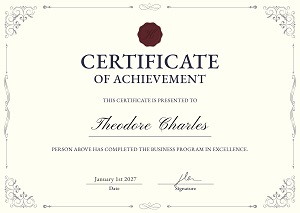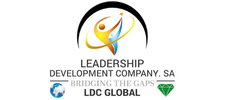About the Course
The Agile Change Management Masterclass training course is designed for professionals keen on driving successful change initiatives by embracing agile methodologies. As organisations increasingly recognise the need for agility to stay competitive, the ability to manage change in an agile manner has become a crucial competency. This will guide delegates through the principles, planning, implementation, evaluation, and sustainability of agile change management, providing them with a comprehensive toolkit to effectively lead and support transformative projects.
The delegates attending this training program will learn the core principles of agile change management, learning how to foster an agile mindset within their team and organisation. It will help them understand the importance of aligning change initiatives with business goals and how to build adaptive and resilient strategies. Delegates will explore various agile frameworks and methodologies that can be applied to change management, ensuring that they can tailor their approach to fit the unique needs of their organisation. By understanding the roles and responsibilities involved in agile change, delegates will be better prepared to lead cross-functional teams and manage stakeholder expectations.
It applies practical sessions that focus on planning, executing, and evaluating change initiatives. Delegates will learn how to create comprehensive change management plans, allocate resources effectively, and utilise agile project management techniques to monitor progress and performance. Additionally, it emphasizes the importance of continuous improvement, feedback mechanisms, and performance metrics to ensure that change initiatives are successful and sustainable in the long run. Delegates will have a robust understanding of how to embed change into the organisational culture, maintain momentum post-implementation, and build resilient teams capable of adapting to future challenges. It will empower them to become a catalyst for positive change, driving innovation and growth within the organisation.
Core Objectives
By the end of the training course, delegates will be able to:
- Know the fundamental concepts and principles of contractor management
- Explain the various types of contracts used in maintenance and technical projects and their implications for contractor relationships
- Utilise best practices for contractor selection and evaluation to effectively identify suitable contractors for specific projects
- Differentiate between different contractor management strategies and assess their effectiveness in various operational contexts
- Evaluate and assess contractor performance against established metrics and compliance standards to ensure alignment with project goals
- Develop comprehensive contracts that clearly outline scope, performance expectations, and payment terms to facilitate successful contractor engagements
- Demonstrate effective negotiation techniques to establish mutually beneficial agreements with contractors while addressing potential conflicts and challenges
Training Approach
This training course will employ a blend of interactive lectures, group discussions, and practical exercises to engage participants and reinforce learning. Delegates can collaborate in case study analyses and role-playing scenarios that simulate real-world contractor management challenges. This hands-on approach will facilitate the application of concepts learned, promoting deeper understanding and retention of essential skills for effective contractor management.
The Attendees
This training course is suitable for professionals from various roles within maintenance and technical project environments, all of whom play a crucial part in contractor management.
But, it will be valuable to the professionals but not limited to the following:
- Project Managers
- Contract Managers
- Maintenance Supervisors
- Technical Operations Managers
- Procurement Specialists
- Safety Officers
- Quality Assurance Managers
- Financial Analysts
- Human Resources Representatives
- Compliance Officers
Daily Discussion
DAY ONE: CONTRACTOR MANAGEMENT OVERVIEW
- Understanding Contractor Management
- Roles and Responsibilities of Contractors
- Key Elements of Contractor Selection
- Establishing Contractor Evaluation Criteria
- Risk Management in Contractor Engagement
- Compliance and Regulatory Considerations
- Performance Monitoring and Reporting
- Contractor Safety Standards and Practices
- Building a Contractor Management Framework
DAY TWO: CONTRACT TYPES FOR MAINTENANCE & TECHNICAL PROJECTS
- Overview of Contract Types
- Fixed-Price Contracts
- Cost-Reimbursement Contracts
- Time and Materials Contracts
- Hybrid Contracts
- Selecting the Right Contract Type
- Implications of Contract Types on Management
- Industry-Specific Contract Considerations
- Reviewing and Amending Contracts
DAY THREE: DEVELOPING THE CONTRACT
- Contract Preparation Process
- Key Contractual Terms and Conditions
- Scope of Work Definition
- Establishing Performance Metrics
- Payment Terms and Schedule
- Change Management Procedures
- Dispute Resolution Mechanisms
- Risk Allocation in Contracts
- Contract Approval and Execution Processes
DAY FOUR: PEOPLE MANAGEMENT
- Effective Communication Strategies
- Building Strong Contractor Relationships
- Team Dynamics in Contractor Management
- Conflict Resolution Techniques
- Motivating and Engaging Contractors
- Cultural and Ethical Considerations
- Performance Feedback and Evaluation
- Managing Remote and On-Site Teams
DAY FIVE: NEGOTIATION ASPECTS
- Principles of Effective Negotiation
- Preparing for Negotiation
- Negotiation Strategies and Tactics
- Building Win-Win Scenarios
- Managing Difficult Negotiations
- Closing the Deal
- Post-Negotiation Follow-Up
- Negotiating with Multiple Stakeholders
- Ethical Considerations in Negotiation

Certificate Awarded
Upon successful completion of this training course, participants will be awarded a Certificate of Completion from LDC Global, acknowledging their accomplishment. This certificate serves as a testament to their dedication to developing their skills and advancing their expertise in their respective fields.
